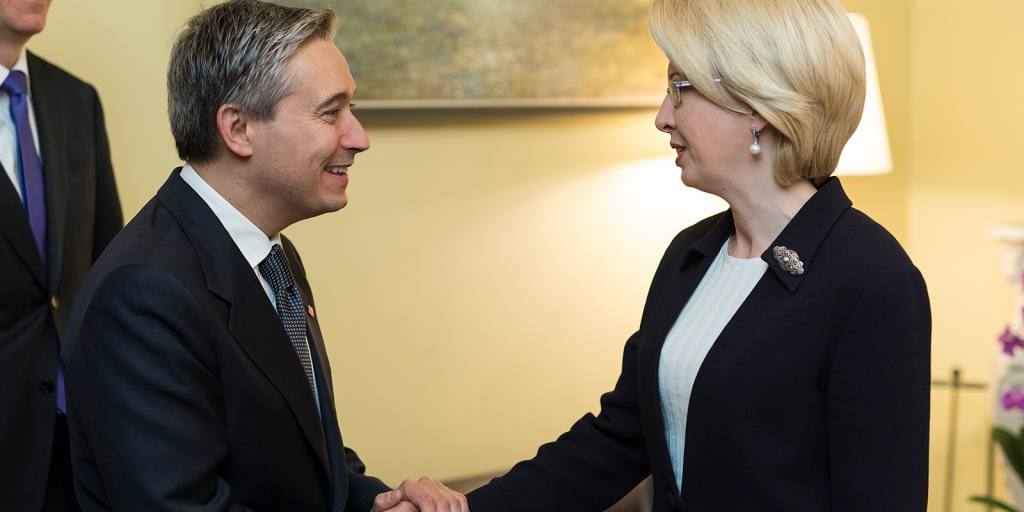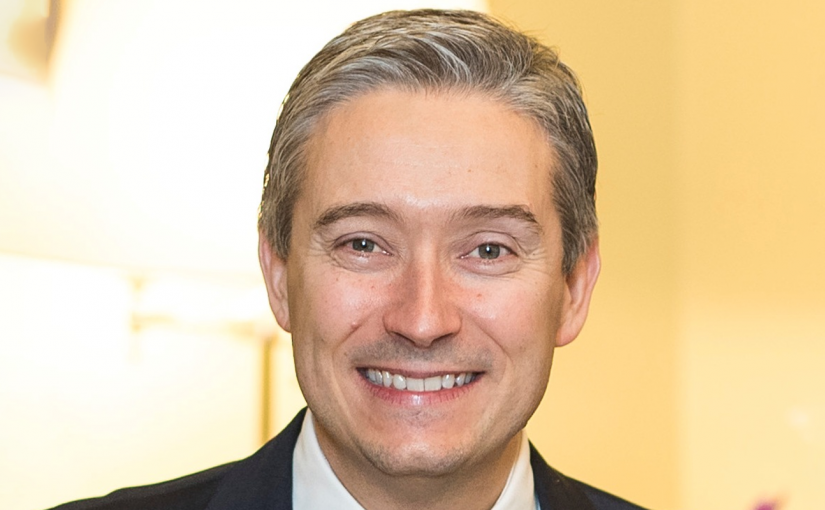According to a well-placed leak to CBC News, Canadians have learned that François-Philippe Champagne will be Canada’s 14th Minister of Foreign Affairs, succeeding Chrystia Freeland in the role at Global Affairs Canada.
Champagne was most recently the Minister of Infrastructure and Communities but held the role of Trade Minister just last year in 2018. The promotion to Foreign Affairs Minister is a logical career-track progression for the Minister.

Canada’s foreign affairs challenges
Champagne will be Canada’s principle international-facing Minister on a number of difficult files.
China’s Canadian hostages and Hong Kong
Perhaps most pressing of issues is the detention of two Canadians by the Chinese government. This came as retaliation for Canada’s intent to fulfill an American extradition request for Meng Wanzhou, the Chief Financial Officer of Huawei.
The Chinese government has held Michael Kovrig and Michael Spavor for over 340 days and the two have endured regular interrogation and stress-induction methods at the hands of their PRC captors.
Hong Kong remains a hotspot and a growing concern for Canada. Over half a million Canadians trace their roots back to Hong Kong and about 200,000 were born in the former British colony. The rule of law is being eroded every day for its residents as China starts exerting its influence and control.
François-Philippe Champagne must speak confidently for Canadians without encumbrance on Hong Kong and for the rights of Hong Kongers and the freedoms that they enjoy.
Canada-US relations is an ongoing dance
Champagne is now in charge of managing the Canada-US bilateral relationship. Canada has been without an ambassador in Washington DC since the resignation of David MacNaughton.
Canadians expect an embassy appointment soon as the renegotiated NAFTA (USMCA) agreement still languishes and remains unratified by Congress. Unfortunately, Congress is now gripped by inquiries into impeachment of President Trump.
The Americans will also be looking to Canada and its new Foreign Minister to back up a principled stance in two hotspots in the Americas.
South America is bucking socialist strongmen
Venezuelans have faced hyper-inflation, starvation, and a political crisis sparked by Hugo Chavez and continued by the Maduro regime. Over 10% of Venezuelans have fled the country and more than 90% live in poverty.
Closeby in Bolivia, the resignation of Evo Morales — after being ousted by the military due to accusations of fraud and corruption — poses new challenges for Canada.
The Trudeau government has already declared that it will work with the new government of Jeanine Añez, while refusing to join the United States, Brazil, and Colombia in recognizing Añez as the new President. If Canada is to speak with principled leadership in the region, it cannot continue with this wishy-washy stance.
Canada should do as it did in Venezuela when it recognized the opposition leader as the rightful leader of the country. Again, this comes after reports of corruption, constitutional manipulation, and fraud in both countries by long-standing regimes which have impoverished its people.
Iran faces internal turmoil, Canada should back up the people against the regime
Iran is facing an uprising of its people and has been witness to widespread protests for the past few days. Terry Glavin reports major disturbances in more than 100 towns with 12 people dead and 1000 protesters arrested so far. Iran, as Iran does, has shut down internet access in an attempt to stem the protests.
All of this unrest is in reaction to a spike in fuel prices mandated by the government. Yet, democratic activists in Iran have been vocally calling for regime change for quite some time.
Since the end of the Harper government, Canada has been playing toward the European end of the engagement spectrum with Iran, eschewing the American position of sanctions and isolation in response to Iran’s aggressive plan to enrich uranium for the use in nuclear weapons.
The Canadian-European position is untenable versus a regime that breaks its word on its plans for uranium enrichment. The Iranian government claims peaceful use for energy production. However, the regime continues to threaten Isreal with annihilation and continues to make marked steps away from the 2015 Iran deal.
Champagne will have a chance to reassess Canada’s approach to Iran and will hopefully come to determine that sanctions and isolation are appropriate and reform-inducing responses to a rogue regime that flouts international law.
Trade
On the trade-front, Trudeau has been wise to continue Prime Minister Harper’s agenda of negotiating free trade agreements with friendly nations. Canada is currently negotiating significant free trade agreements with India, Japan, and the Mercosur nations of Argentina, Brazil, Paraguay, and Uruguay.
Trudeau will need to repair relations with India to re-prioritize Canadian negotiations with the world’s largest democracy (and growing market), while its diplomatic positions on change in South America could direct progress among the significant markets of that continent.
